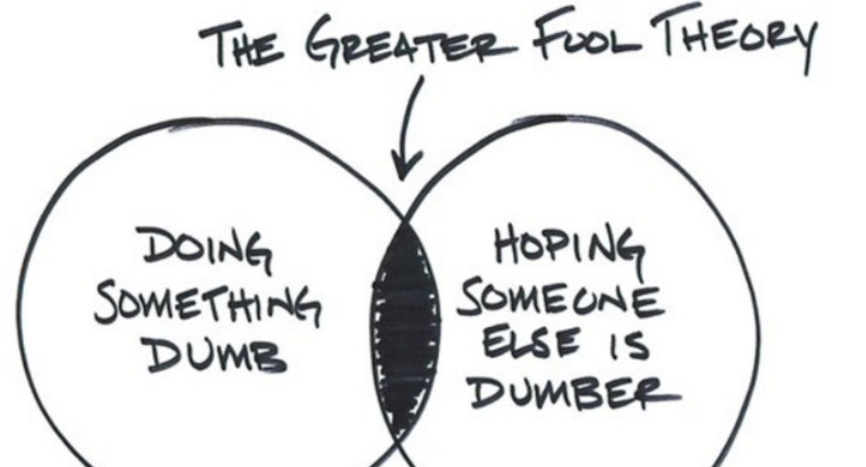 Nassim Nicholas Taleb, the former trader and well known author of The Black Swan and Fooled By Randomness, has put together a new book of aphorisms, entitled The Bed of Procrustes. The Procrustes of Greek mythology was a cruel fellow who stretched or shortened people to make them fit his inflexible bed. Mr. Taleb’s new book addresses the modern day ways in which “we humans, facing limits of knowledge, and things we do not observe, the unseen and the unknown, resolve the tension by squeezing life and the world into crisp commoditized ideas, reductive categories, specific vocabularies, and prepackaged narratives, which, on the occasion, has explosive consequences.” In other words, we live under self-imposed delusions. Here are a few of the aphorisms that expose our delusionary thinking, many of which can be applied to trading. But, in order to understand their application, we must first step out of our delusional state.
Nassim Nicholas Taleb, the former trader and well known author of The Black Swan and Fooled By Randomness, has put together a new book of aphorisms, entitled The Bed of Procrustes. The Procrustes of Greek mythology was a cruel fellow who stretched or shortened people to make them fit his inflexible bed. Mr. Taleb’s new book addresses the modern day ways in which “we humans, facing limits of knowledge, and things we do not observe, the unseen and the unknown, resolve the tension by squeezing life and the world into crisp commoditized ideas, reductive categories, specific vocabularies, and prepackaged narratives, which, on the occasion, has explosive consequences.” In other words, we live under self-imposed delusions. Here are a few of the aphorisms that expose our delusionary thinking, many of which can be applied to trading. But, in order to understand their application, we must first step out of our delusional state.
The stock market, in brief: participants are calmly waiting in line to be slaughtered while thinking it is for a Broadway show.
You are rich if and only if money you refuse tastes better than money you accept.
The best test of whether someone is extremely stupid (or extremely wise) is whether financial and political news makes sense to him.
You can be certain that the head of a corporation has a lot to worry about when he announces publicly that “there is nothing to worry about.”
The main difference between government bailouts and smoking is that in some rare cases the statement “this is my last cigarette” holds true.
The difference between banks and the Mafia: banks have better legal-regulatory expertise, but the Mafia understands public opinion.
They would take forecasting more seriously if it were pointed out to them that in Semitic languages the words for forecast and “prophecy” are the same.
The three most harmful addictions are heroin, carbohydrates, and a monthly salary.
I wonder is anyone ever measured the time it takes, at a party, before a mildly successful stranger who went to Harvard makes others aware of it.
It takes a lot of intellect and confidence to accept that what makes sense doesn’t really make sense.
Education makes the wise slightly wiser, but makes the fool vastly more dangerous.
The best revenge on a liar is to convince him that you believe what he said.
How often have you arrived one, three, or six hours late on a transatlantic flight as opposed to one, three, or six hours early? This explains why deficits tend to be larger, rarely smaller, than planned.
The most painful moments are not those we spend with uninteresting people; rather, they are those spent with uninteresting people trying hard to be interesting.
The characteristic feature of the loser is to bemoan, in general terms, mankind’s flaws, biases, contradictions, and irrationality-without exploiting them for fun and profit.
You don’t become completely free by just avoiding to be a slave; you also need to avoid becoming a master.
The fastest way to become rich is to socialize with the poor; the fastest way to become poor is to socialize with the rich.
Some, like most bankers, are so unfit for success that they look like dwarves in giants’ clothes.
Over the long term, you are more likely to fool yourself than others.
It is those who use others who are the most upset when someone uses them.
A genius is someone with flaws harder to imitate than his qualities.
It is much less dangerous to think like a man of action than to act like a man of thought.
What I learned on my own I still remember.
Regular minds find similarities in stories (and situations); finer minds detect differences.
The tragedy is that much of what you think is random is in your control and, what’s worse, the opposite.
You can only convince people who think they can benefit from being convinced.
Trust people who make a living lying down or standing up more than those who do so sitting down.
Even the cheapest misers can be generous with advice.
The difference between magnificence and arrogance is in what one does when nobody is looking.
When conflicted between two choices, take neither.
A prophet is not someone with special visions, just someone blind to most of what others see.
You know you have influence when people start noticing your absence more than the presence of others.
There is much more where the above came from but you will have to get up out of bed, head to the bookstore, and find out for yourself. May be worth the trip.


 General Guides:
General Guides:
 Nassim Nicholas Taleb, the former trader and well known author of
Nassim Nicholas Taleb, the former trader and well known author of